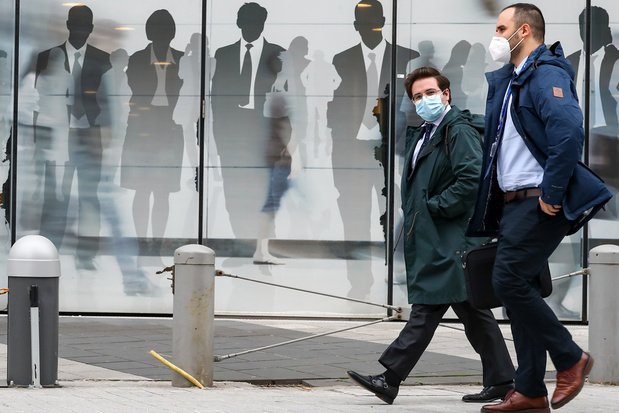Belgium's updated Covid-19 testing strategy will underrepresent the number of actual coronavirus infections in the country, health officials said during a press conference on Wednesday.
"This adaptation may result in a reduced number of reported infections, and also in the percentage of positive tests," said virologist and interfederal Covid-19 spokesperson Steven Van Gucht.
The new strategy will no longer allow people without symptoms, including people who had a high-risk contact or travellers returning from red zones, to be tested.
When looking at the figures over the coming days, "we should bear [this underestimation] in mind," Van Gucht said. "However, the changed strategy will have no impact on the hospital figures."
Related News
- Covid-19: New testing changes cause anger and confusion
- Flanders will purchase rapid coronavirus tests
- Explaining Belgium's new Covid-19 testing strategy
The adaptation of the strategy is "not ideal," according to Van Gucht, who added that it is "a temporary emergency intervention."
"After all, it is crucial that the test results are available quickly, meaning within 24 hours, or a maximum of 48 hours, for people with symptoms," he added.
On average, 25% of people with symptoms currently test positive for the coronavirus. "For people who have had a high-risk contact, this percentage is now at 15%."
Most of the 15% of people who tested positive after a high-risk contact will still develop symptoms, according to Van Gucht. "They will then be tested, and still appear in the statistics."
An overview of Belgium's adapted Covid-19 testing strategy, which takes effect today, can be found here.
Maïthé Chini
The Brussels Times

